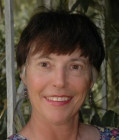How International Election Observers Can Help Fledgling Democracies
Americans take for granted that if they dislike leaders, candidates, or government policies, there are ways to voice opposition. They can criticize a policy and oppose or support a leader or candidate. Even if Americans do not like outcomes all the time, most understand that they can have input and work for change through democratic means. Historically, many other countries across the world have lacked similar arrangements to enable citizen dissent and input. But in recent decades, fledgling democracies have started to take shape, giving new hope to people who have not enjoyed peaceful openings to influence authoritarian governments.
The movement from authoritarianism to democracy is difficult and takes time, attention, and care. As many people in the United States and other established democracies watch from afar and hope that the transition succeeds, can anything be done to speed and ease the emergence of new democracies? My work explores answers to this question, focusing on three key aspects of democratic development: elections, parties, and citizen participation. In this brief, I summarize what is known about how independent election observers – such as those now deployed by a number of international organizations – can encourage regular, free, and fair elections in emerging democracies.
Elections Do Not Always Work
Democracy cannot function without elections that give citizens channels to express opinions and support – or oppose – leaders and policy directions. Regular and repeated elections are the key. When some citizens find themselves on the losing side of an election or policy battle, they need to know that they will always have another chance to select leaders and influence the course of government. In addition, citizens who approve the governing achievements of winning candidates want opportunities to register that approval and either support the leader to remain in office or elect another of similar orientation.
Especially in emerging democracies, elections do not always work fairly or well. In extreme cases, military leaders may reject the outcome of elections and simply refuse to let the winning candidates take office. But short of such outright repudiation of election outcomes, flawed election processes can undermine public faith in the outcome or provoke losing candidates and their supporters to denounce the fairness of the results. Electoral integrity can be undermined in many ways more subtle than a military coup.
- Even in a country that calls itself a democracy, some citizens may not have an equal chance to register to vote or may not receive their voting materials on time. These exclusionary patterns are especially worrisome when they single out one sector of the population or one partisan group.
- On voting day, voting precincts may have inadequate staffing or insufficient hours.
- Groups of voters may feel intimidated to vote in a particular way, or they may in effect sell their votes because they are so poor that a pound of rice or a dose of medication appears more important to them in the moment than voting their conscience.
- Finally, counting of votes after they are cast may be done incorrectly, and election results may not be published in a transparent fashion.
All of these flaws, and others like them, undermine the function of elections and weaken democracy itself.
What Election Observers Do
Electoral observation is a new practice by which professionals or volunteers from established democracies help new democracies conduct fair elections. Done right, observation is a heavy responsibility that cannot be accomplished simply by having observers drop in on election day.
- Effective observers get involved early in efforts to guarantee free elections, starting with efforts to register voters. All citizens in a democracy must learn how to register and be able to do so, regardless of partisan affiliation or social backgrounds. Electoral oversight can also make certain that government staffers send out voter materials with adequate advance time, so voting precincts are staffed and funded to accommodate all voters registered to vote.
- The next steps happen on Election Day, when independent observers can help ensure that voters do not feel intimidated as they travel to the polls and stand in line. Observers can urge that safe transport is available and can be present to make sure that polls open on time and remain open until all voters have cast their ballots. Observers can work to create a safe space around polling locations and help ensure that agents of competing parties are not hanging around attempting to see how voters vote or offering payoffs in return for certain kinds of votes. Indeed, the mere presence of independent observers sometimes suffices to reassure voters and reduce bribery and intimidation.
- Finally, there is the vote count, where external observers can closely watch the tallies and make certain that the ballots are counted correctly and the actual outcome is publicized. Publicity matters, because parties have been known to allow a clean election but then refuse to release honest returns in the precincts where they lost. Just like other forms of fraud or intimidation, this amounts to stealing the election, so observers must remain vigilant throughout the entire process from voter registration to the publication of full results.
International Electoral Observation Organizations Make a Difference
In all democracies, old and new, domestic and international newspapers and other media outlets can be a good source of information about electoral fairness. Yet there are also specialized organizations – like the Carter Center in Georgia – that regularly deploy teams of election observers abroad and issue reports about the fairness of elections in countries across the globe.
Political scientists have discovered that a history of clean elections is conducive to continued fair elections, so well-organized international efforts can have long-term pay-offs. When democracy is new, outside observers can play a key role in improving election procedures and performance, setting the country on the path toward fair and regular elections long into the future.
